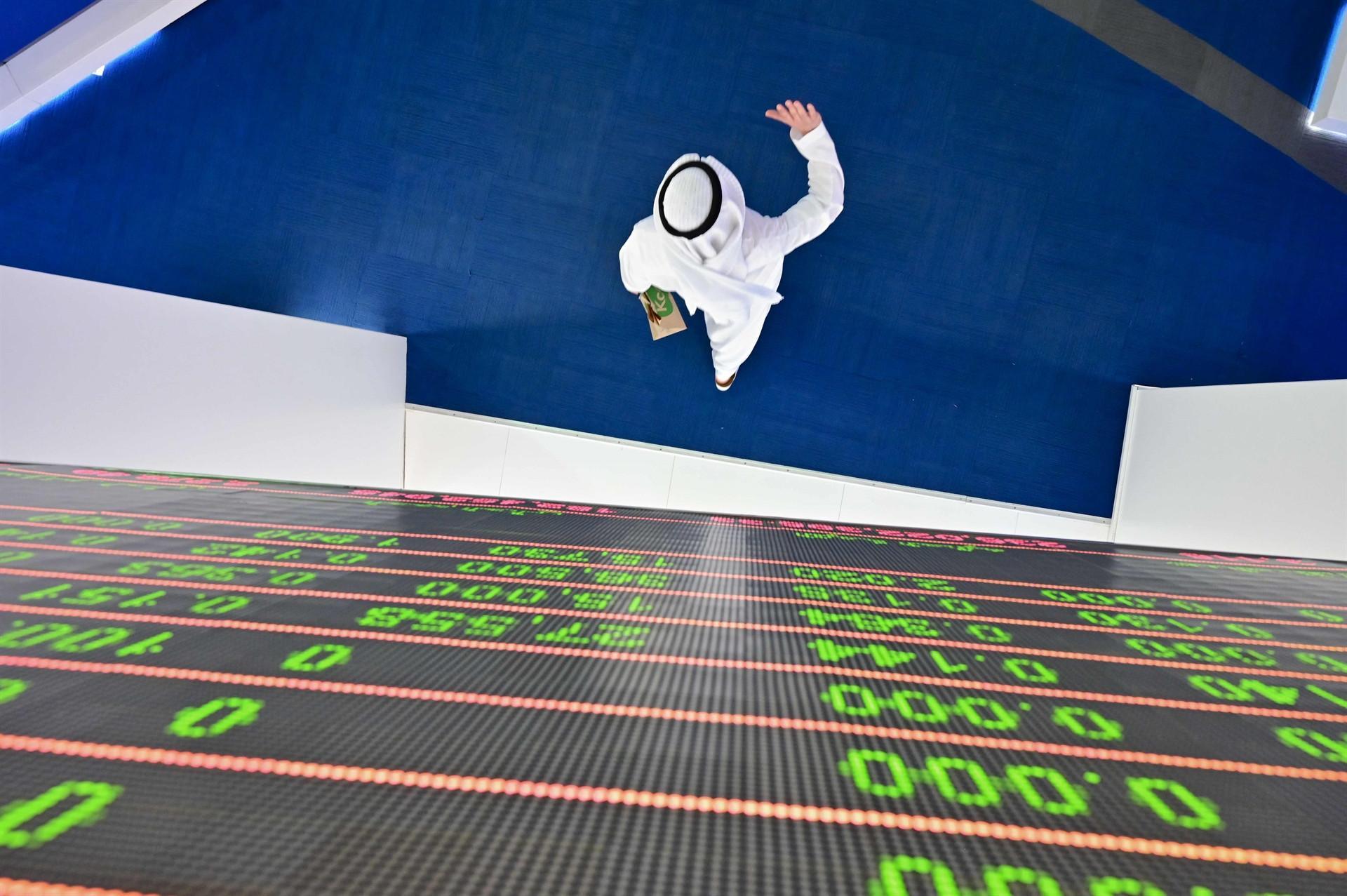
A trader walks by beneath a stock display board at the Dubai Stock Exchange in the United Arab Emirates, on March 8, 2020. (AFP Photo)
Following Russia’s refusal to cut oil output faced with a coronavirus-fuelled slump in demand, its alliance with the Organization of Petroleum Exporting Countries (OPEC) has been thrown into doubt, as has the cartel’s influence on prices.
The “OPEC+ alliance looks dead after OPEC failed to reach an agreement with Russia on further production cuts,” banking group ANZ said in a client note after Russia’s move on March 6 sent oil prices crashing.
The losses widened massively on March 9 after Saudi Arabia, the kingpin in the OPEC, responded with the biggest cuts to the kingdom’s prices in two decades, moving to snatch some of Russia’s market share.
That, in turn, sent world benchmark oil prices diving, with Brent North Sea and WTI each shedding 30 percent, before recovering slightly.
“It looks like... we are in a completely different oil world than over the last three years, where OPEC+ regularly provided a floor to prices,” AFP quoted analysts at JBC Energy as saying.
Faced with a vertiginous collapse in crude prices beginning in 2014, OPEC members agreed in late 2016 with ten non-member oil producing nations, including big player Russia, to limit output.
But after Russia last week placed in serious doubt the future of OPEC+, analysts said Riyadh’s retaliatory move could be an attempt to get Moscow back to the negotiating table, even if they doubt it will happen.
JBC Energy said the recent meeting’s failure can be explained by different expectations regarding prices – Russia seemingly satisfied with crude at $50 per barrel, while Saudis prefer $60-70.
“However, all oil producers will agree that $25 is not what they want,” JBC added.
Following the slump, Brent was trading around $37 per barrel and WTI at about $34 - even this perhaps not an enough plunge to get Russia back onside.
“Russia is better prepared than previously,” said Chris Weafer, founder of Macro Advisory, which provides expert opinion on the country.
According to Weafer, Russia has significantly more financial reserves than Saudi and a fluctuating currency to cushion the impact on the nation’s budget, whereas the kingdom’s currency is pegged to the dollar.
‘Doors are not closed’
Russian Energy Minister Alexander Novak said on March 10 that Moscow remains open to further cooperation with OPEC to stabilize the oil market.
“I want to say the doors aren’t closed,” Novak told the state-run Rossiya 24 television network.
“We have planned the next meetings in May or June to assess the situation on the market,” he added.
But in response, Saudi Arabia’s energy minister told Reuters he did not see a need to hold an OPEC+ meeting in May-June if there was no agreement on what measures should be taken to deal with the impact of the coronavirus on oil demand and prices.
“I fail to see the wisdom for holding meetings in May-June that would only demonstrate our failure in attending to what we should have done in a crisis like this and taking the necessary measures,” Prince Abdulaziz bin Salman said.
The Russian Central Bank would start preemptive selling of foreign currency on the market on March 10 to lower market volatility after a steep drop in the rouble, the bank said.